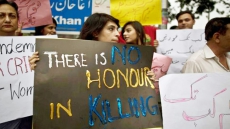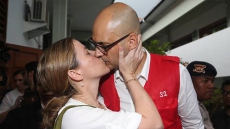TORONTO — In the wake of an attack that saw a truck slam into a crowd of Bastille Day revellers in Nice, France, killing at least 84, Facebook has activated its "safety check" feature.
The tool helps users of the social network inform their Facebook friends that they are safe during crisis situations.
If Facebook detects that you are in an area near a major crisis like a natural disaster or violent attack, it will send you a notification asking if you are safe.
A sample safety check message on Facebook's website reads, "Are you OK? It looks like you're in the area affected by the Mento Park Earthquake. Let friends know if you're safe."
You can then click a button that says, "I'm Safe," and a post will show up on your news feed indicating that you are OK.

Facebook users worried about friends who may be near a crisis zone can also visit the safety check page to see a list of any friends in the area, and find out which ones have checked in as safe.
The safety check page also includes a map of the affected area and a link to news reports of whatever crisis is happening.
If Facebook has misjudged your location — which is determined by the city listed in your profile, your last location, or the city where you are using the Internet — and sent you a safety check notification erroneously, you can also mark that you are not near the danger.
Facebook says it activates the safety check feature during dangerous situations with clear start and end points, when a large number of people would be concerned about the status of loved ones.
The social media giant has said the feature would not be useful in areas of ongoing crises like wars or disease epidemics, as it would be impossible to declare someone truly safe.

Introduced in October 2014 to be used during natural disasters, Facebook began activating safety check for violent incidents after the Paris terror attacks in November 2015.
More recently, the safety check was activated after the bombing and shooting attacks on Istanbul's airport on June 28, and the mass shooting at Pulse nightclub in Orlando, Fla., on June 12.
Facebook is currently working to allow users to initiate safety checks themselves, without having to wait for the site's employees to recognize a need for it first.
The feature is not the only way in which people use the social network during times of crisis.
French news service Agence France Presse has reported that, in the hours after the Nice attack, appeals were sent out by Facebook users trying to locate an eight-month-old baby boy who went missing in the chaos.

An appeal for help posted by a woman who said she was not the baby's mother, was shared thousands of times before a young woman who saw it contacted the parents to say she had found the baby and taken him home with her.




